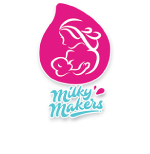
Breastfeeding: The Maternal Health Benefits
(Beyond the love, beyond the bond)
Breastfeeding is universally endorsed as the gold nutrition standard by the World Health and scientific organization. In fact, expected mothers know the potential benefits of it for the baby’s immune function and intellect. However, mothers could also be asking themselves: Is there anything in breastfeeding acquisition for me? What breastfeeding do to the health of mother? Research offers a range of optimal and potential benefits such as physiological, psychological, and economical as well.
In the basic form, mom devotes an estimated 525 to 625 calories (during lactation period) per day providing 750 ml of milk infants require daily over the first year of life. Breastfeeding burns extra calories, so it can help you lose pregnancy weight faster. It releases oxytocin, which helps your uterus to return to its pre-pregnancy size and may reduce uterine bleeding after birth. Breastfeeding also has really important effect on woman’s blood pressure. According to a new study, women who have been breastfeeding for longer periods of time and have breastfed more than one baby are less likely to suffer from hypertension (high blood pressure). It also found out that mothers don’t breastfeed have more at risk of cardiovascular disease regardless of their diet, exercise, whether or not they are smoking, and family history too. Lastly, it may also protect against breast and ovarian cancers by suppressing ovulation and thus limiting lifetime estrogen exposure (Clemons & Giss, 2001; Key & Pike, 1998). Theoretically, it may reduce the risk of breast cancer, because estrogen increases rates of breast cell proliferation and differentiation. A review by Shoham (1994) revealed that 6 of 11 studies found that breastfeeding was related risk of ovarian cancer. More recently, researchers analyzed 391 cases of epithelial ovarian cancer among 149,693 women in the Nurses’ Health Study (Danforth et al, .2007). They found that for each month of additional breastfeeding, the risk of epithelial ovarian cancer was reduced by 2%.
New mothers struggle to meet to find for their baby while trying to meet the needs of partners, other children, and themselves (Gruis, 1977). Given all the stressful demand and challenges parenthood brings, it is perhaps unsurprising that approximately 1 in 5 women self-reported depressive symptoms within first year after birth (Gavin et al a, 2005). The earliest studies done on rodents revealed that lactating dams were remarkably resistant to stress. Lactating rodents exposed to stressors, such as electric shocks, fierce predators, or complex mazes, displayed fewer hormonal and cardiovascular signs of anxiety than non-lactating female counterparts (see Neumann, 2001, for a review). Postpartum depression is a devastating mental illness affecting approximately 13% of women worldwide within the first 12 weeks after giving birth (O’Hara & Swain, 1996) and roughly 1 in 5 women, within the first postpartum year. The effects of postpartum depression are insidious because they can disrupt parenting behaviors (Field, 2010) resulting cognitive, emotional, and behavioral development of children (Grace, Evindar & Stewart, 2003). Breastfeeding is clearly related to postpartum depression; however, the nature of that relationship remains somewhat unclear. Given the theoretical reasons to think that breastfeeding might be protective against depression, further research using longitudinal or experimental designs is clearly needed before conclusions can be drawn.
In addition to individual health benefits, breastfeeding may provide significant economic benefits in terms of reducing both direct and indirect costs. The direct costs that might be reduced or averted would relate, of course, to physician, clinic, hospital, laboratory, and procedural fees. Other direct economic benefits to a family may be no or reduced costs to buy infant formula for the first year after birth. Possible indirect costs may relate to time and wages lost by parents (primarily mothers) attending to an ill child. Ideally, attributing costs to time and wages lost by parents attending a sick child should be considered when estimating the possible economic benefits of breastfeeding. Many women return to work before a child is 1 year old (Cohen et al., 1995). When these women miss work, it often is because their infants are ill. As breastfed infants have been shown to be less likely to catch common infectious illnesses than formula-fed infants, it is possible that mothers who breastfeed may miss fewer days from work to care for a sick child than mothers who feed formula.
Based on the countless benefits of breastfeeding it seems like choosing to breastfeed is the best option. Undeniably, there is a growing body of evidence that supports breastfeeding as a way of woman’s health after pregnancy as it may help her return to a normal metabolic profile and to lose the weight she gained during pregnancy and among other benefits. Indeed.






